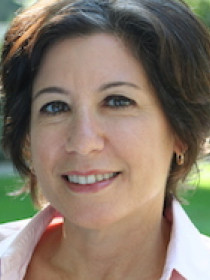
Leslie McCall
Connect with Leslie
About Leslie
McCall studies trends in earnings and income inequality and public opinion about inequality, economic opportunity, and a wide range of social and economic issues and policies. Her research on inequality focuses on growing economic disparities among women and families as gender inequality at work and home continues to decline. Her research on public opinion examines changes in attitudes over the last several decades and includes an examination of media coverage of inequality from the 1980s to the present. She was formerly Professor of Sociology and Political Science and Faculty Fellow at the Institute for Policy Research, Northwestern University.
Contributions
Americans Care about Inequality When It Limits Opportunity
In the News
Publications
Introduces a measure that allows asymmetric changes and also incorporates multiple population subgroups and income sources beyond couples’ labor earnings. Uses Current Population Survey data, the authors find that women’s self-reliance increased dramatically, as expected, but men’s declined only slightly. Decomposes these trends into changes in family structure and redistribution, which increased and decreased self-reliance, respectively, for men and women, though more for women.
Reviews social science research on the views of different class segments vis-à-vis economic, political, and sociocultural issues, finding greater scholarly attention to the interdependence of economic, social, and political concerns and preferences than arguably was the case even a few years ago.
Presents results of three experiments showing that exposure to information about rising economic inequality sparks skepticism about the existence of economic opportunity in society that, in turn, motivates support for equity-enhancing policies.
Updates and summarizes data and findings in the Undeserving Rich book and describes a path of policy making that appeals to American concerns about inequality of both outcomes and opportunities.
Places current debates about identity politics in historical context. Argues for a turn to a more robust definition of identity as multidimensional and politically mediated for understanding political alignments over the past several decades.